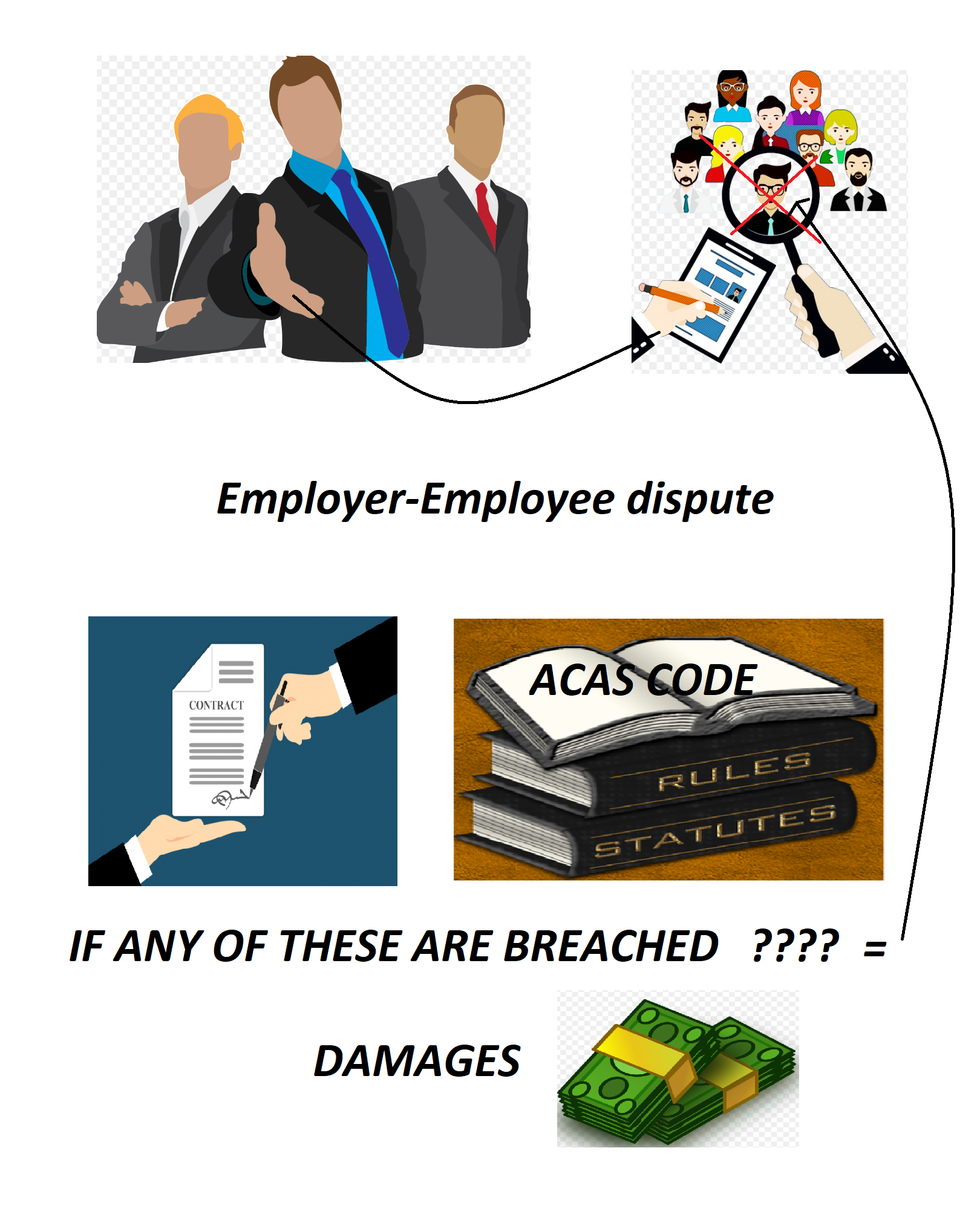Malloch v.Aberdeen Corporation [1971] 1WLR 1578, at 1581 (HL) 766, 770
Citation:Malloch v.Aberdeen Corporation [1971] 1WLR 1578, at 1581 (HL) 766, 770
Rule of thumb:Where a contract is breached what is the most common remedy? The most common remedy is damages. It is rare that specific implement/injunction with the contract being honoured will be the remedy. What is the method for considering whether employment has been breached? Consideration of statute, Regulations, ACAS Code and contract.
Rule of thumb:How do you consider whether the law has been breached? All legal sources have to be considered and the most in-point legal provision applied.
Judgment:
Where there are many sources of law that are all relevant to a particular scenario, particularly in employment law, they all have to be laid out & interpreted as potentially relevant sources of law, and it can then be difficult to work out how exactly the law is - it is difficult to consider employment cases because there are often many different sources of law to establish what is expected of both parties – statutes, regulations, case law, various codes of conduct, and contractual agreements. In contract law or commercial law, particularly employment law, people can largely choose to ignore these fields of law if they so wish, and it is rare that there will be a specific implement or an injunction to have the contract honoured, with the most important & common remedy being damages rather than reinstatement of the contract.

Ratio-decidendi:
‘At common law a master is not bound to hear his servant before he dismisses him. He can act unreasonably or capriciously if he so chooses but the dismissal is valid. The servant has no remedy unless the dismissal is in breach of contract and then the servant’s only remedy is damages for breach of contract.’ Lord Reid.
‘The difficulty arises when, as here, there are other incidents of the employment laid down by statute, or regulations, or code of employment (often ACAS), or agreement. The rigour of the principle is often, in modern practice, mitigated for it has come to be perceived that the very possibility of dismissal without reason being given – action which may vitally affect a man’s career or his pension – makes it all the more important for him, in suitable circumstances, to be able to state his case and, if denied the right to do so, to be able to have his dismissal declared void. So, while the courts will necessarily respect the right, for good reasons of public policy, to dismiss without assigned reasons, this should not, in my opinion, prevent them from examining the framework and context of the employment to see whether elementary rights are conferred on him expressly or by necessary implication, and how far these extend.’ Lord Wilberforce
Warning: This is not professional legal advice. This is not professional legal education advice. Please obtain professional guidance before embarking on any legal course of action. This is just an interpretation of a Judgment by persons of legal insight & varying levels of legal specialism, experience & expertise. Please read the Judgment yourself and form your own interpretation of it with professional assistance.

